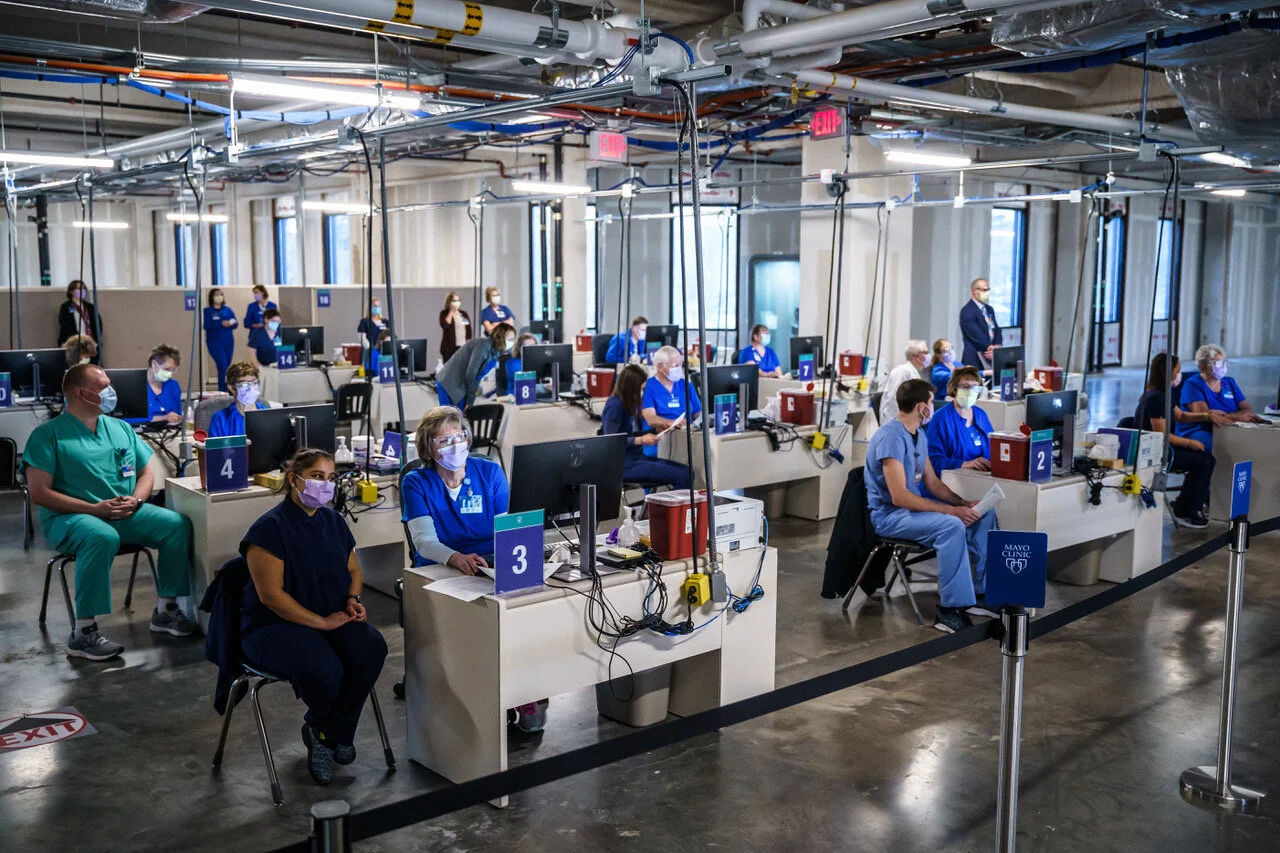Mayo Clinic infectious disease experts say Pfizer vaccine could be a 'game changer'
With encouraging news afoot on one Covid-19 vaccine in development, some of Mayo Clinic’s top researchers expressed their optimism on what could be a pivotal moment in the control of the pandemic.
News broke early Monday morning that a vaccine manufactured by prescription giant Pfizer and German drugmaker BioNTech was 90 percent effective in initial Phase 3 study results. If the study’s findings hold true, that would put the vaccine’s effectiveness on par with widely-administered vaccines for diseases like measles.
The news, while positive, comes at a grim crossroads in America’s fight against the virus: new single-day case counts have crossed 100,000 on a nationwide level for the first time. Twenty-seven states — including Minnesota — have recorded more cases in the past week than any other week since the pandemic began. Additionally, nationwide hospitalizations are on their way to a new peak, after topping out in April and July.
With the nation collectively preparing to move inside as winter approaches, the positive news from Pfizer was embraced by some Clinic researchers.
Dr. Priya Sampathkumar, chair of infection control at Mayo Clinic, told Med City Beat in September that the first Covid-19 vaccines would likely be about 60 percent effective. On Monday, she tweeted she found the vaccine news “exciting,” thanks to the vaccine’s effectiveness and apparent lack of major side effects.
“If this holds up, it could be the game changer we’ve been waiting for,” wrote Dr. Sampathkumar.
Dr. Vincent Rajkumar, a hematologist at the Clinic and an expert on the spread of diseases, echoed the words of Pfizer chairman and CEO Albert Bourla — calling it a “great day for science and humanity” and saying he’d be “first in line” to receive a dose once the vaccine becomes available to the public.
“This is absolutely huge,” wrote Dr. Rajkumar. “From what we have seen with preexisting immunity studies, & the high incidence of asymptomatic/mild disease, all the immune system needs is some prior knowledge of this virus to make the IFR [Infection Fatality Ratio] come down to levels where COVID is not as dangerous as it is now.”
Pfizer plans to ask the FDA for emergency authorization of the vaccine before the end of November. If successful, Pfizer’s bosses say the company could produce up to 50 million doses by the end of 2020, with widespread usage likely by the third quarter of 2021. To obtain full protection, any person would need two doses of the vaccine, spread out over a three-week timeframe.
Isaac Jahns is a Rochester native and a 2019 graduate of the Missouri School of Journalism. He reports on politics, business and music for Med City Beat.
Cover photo: file / licensed via Canva








